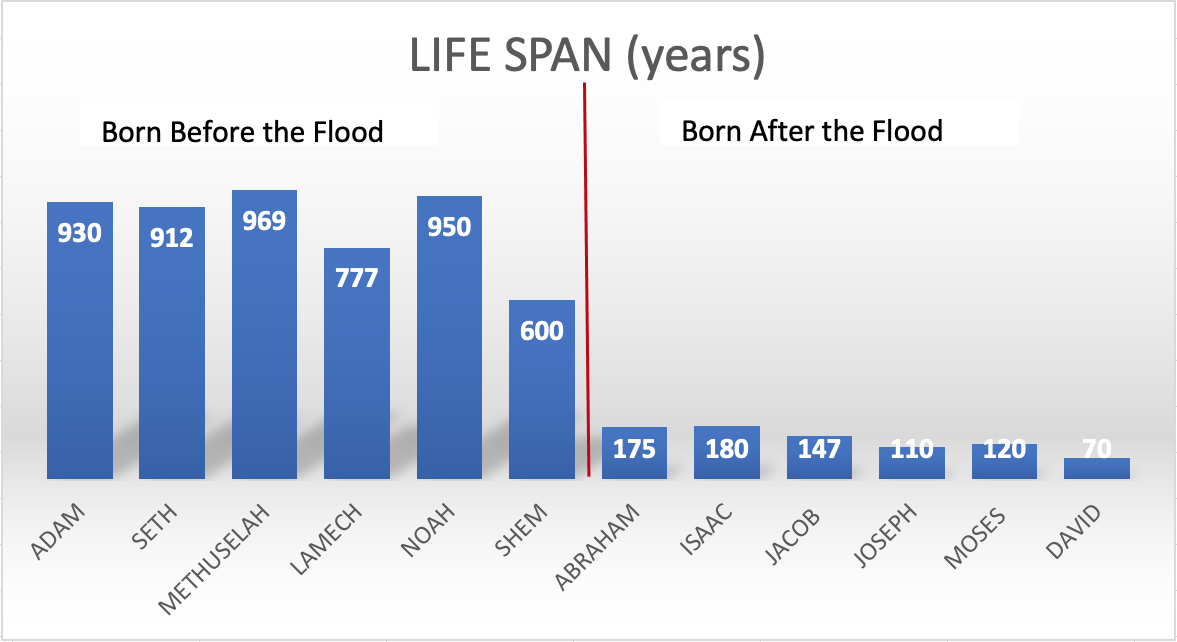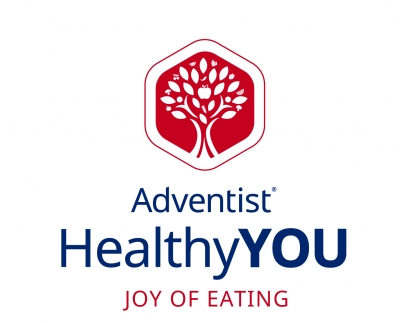“You will show me the path of life;
In Your presence is fullness of joy;
At Your right hand are pleasures forevermore.”
Psalm 16:11
Defining Joy
According to the Merriam-Webster dictionary joy is a state of happiness(1), a feeling the Bible makes very clear God desires all humanity to experience, not only in this life but throughout eternity (Isaiah 49:15; Revelation 21:4; Psalm 34:8; Revelation 21:7). We can experience joy in many ways through the senses God has given us. Unfortunately, many pursue joy in ways that are not what God intended. It is not different when it comes to “joy in eating”; many settle for a counterfeit joy, which may bring some level of temporary pleasure but it ends up leading to sickness, suffering, and premature death.
Identifying True Joy in Eating
A lot of people say “I love eating!” and what they are usually referring to is the taste of foods they enjoy. Good taste is unquestionable part of the experience of eating God designed for us, otherwise He would not have created us with this sense, neither would have He created such a variety of tastes in the foods he intended for human consumption. But is taste the only aspect God wants us to consider when selecting foods to eat? I don’t think so. According to the Bible, joy is part of a bigger package, called “the fruit of the Spirit” which also involves love, peace, patience, kindness, goodness, faithfulness, gentleness, and self-control (Galatians 5:22,23). Therefore, true joy in eating should include these components as well. I can think of many applications for this Bible verse in relation to eating. For instance, I have a lot more joy when I have enough time to sit down and eat my meals with patience than when I’m rushing; I have a lot more joy enjoying my meals when I have feelings of love and peace in my heart than when I’m upset at something or someone; I have a lot more joy in eating in general when I’m faithful to my exercise regimen than when I’m not; when eating out, I have a lot when the server is gentle, good, and kind than when they lack these qualities; and believe it or not, I experience a lot more joy in the experience eating when I also exercise self-control.
The Bible also presents the challenge that when we eat, it should bring glory to God (I Corinthians 10:31), and on the same book it mentions that our body is a temple where the Spirit of God dwells and it should not be defiled (I Corinthians 3:16,17). Interestingly enough, a search on the King James Version of the Bible for the word “defile” shows Leviticus 11:44 as the first time this word is mentioned and it is related to eating, more specifically eating animals that are considered unfit for human consumption (Leviticus 11). A famous Bible character named Daniel seemed to understand this connection between food and the body as a temple to bring glory to God as the Bible says that “Daniel purposed in his heart that he would not defile himself with the portion of the king’s delicacies, nor with the wine which he drank…” (Daniel 1:8). Being a captive in a pagan nation, Daniel knew the foods being served had no intention to bring glory to God (Daniel 1:5), likely including those meats forbidden by God for human consumption, so to be on the safe side he decided to abstain from all animal foods (Daniel 1:12, 16).
Another important aspect of true joy in eating is to consider the consequences of eating certain foods for our health in order to have an abundant life (Exodus 15:26, 3 John 2, John 10:10). The first chapter of the book of Daniel presents some interesting insights on the health impacts of eating a healthy diet. After requesting to be served only foods from plant sources and water to drink for 10 days, Daniel and his three friends experienced significantly better health when compared to the other captives eating the rich foods and alcohol being served as described in Daniel 1:11-20. The better outcomes observed by the steward in charge of them as well as the king were:
- Better physical appearance (Daniel 1:15)
- Intellectual superiority (Daniel 1:17, 20 and the rest of the book of Daniel)
- Spiritual discernment (Daniel 1:17 and the rest of the book of Daniel)
- Wisdom (Daniel 1:20 and the rest of the book of Daniel)
Is there an Ideal Eating Pattern?
Whenever I think of something “ideal” from a Biblical perspective, I think of the conditions of things before sin entered the world and the conditions of a world restored after the second coming of Jesus.
The diet before sin entered the world was a total vegetarian diet, aka a whole food plant-based diet. (Genesis 1:29)
What could be some of God’s intention with this diet?
- Man was created to live eternally so this diet was intended for that.
- No suffering or death of any of his creatures, so animals were vegetarians as well. (Genesis 1:30)
- For pleasure. Food should look good and taste good (Genesis 2:9)
- Man was to take care of his own food. (Genesis 2:15)
- Sustainability as the earth was to be filled with humans and different animals so this diet would have to be ideal for all creatures and for the planet as well (Genesis 1:22; Romans 8:22)
The diet after sin entered the world continued to be vegetarian until after the flood when certain types of meat were allowed (Genesis 3:18, Genesis 9:3)
We can trace all human suffering today as a consequence to something related to food as the enemy of God planted the seed of doubt in the human family about God’s plans and His specific instruction of a certain food that was not to be eaten (Genesis 2:16, Genesis 3). We can also safely say that this was the first counterfeit joy in eating experienced by the human race as Eve describes the food she ate as something pleasant to the eyes and delicious (Genesis 3:6), but unfortunately the consequences of this choice that was clearly contrary to God’s plan lead to much suffering and pain as described in the rest of the Bible. Thankfully, our loving God intervened immediately with a solution that will eventually restore all things to the original plan (Genesis 3:14,15), including the original diet.
After the flood God allowed humans to eat meat (Genesis 9:3) but it should not be consumed with its blood (Genesis 9:4), and certain animals should be avoided altogether (Leviticus 11). By the way, there is evidence these guidelines continued to be observed in the New Testament (Acts 10:42, Acts 15:29). Even though the introduction of meat in the diet was allowed by God we have evidence it continued to not be ideal (Exodus 16, Numbers 11:4-34) and from this time on we can observe a marked decrease in longevity. See the chart below depicting the life spam of the some of the main characters described in the Old Testament. Enoch was excluded as he was translated (Genesis 5:24, Hebrews 11:5).

The diet of the redeemed will be back to be vegetarian (Revelation 21:4, Revelation 22:2).Ellen G. White says that “after the fall, the eating of flesh was suffered in order to shorten the period of the existence of the long-lived race. It was allowed because of the hardness of the hearts of men.” (2)
What does Science say about an ideal diet?
The scientific literature examines different nutrients, foods, and dietary patterns in relation to markers of disease, health outcomes, or mortality. When it comes to mortality, the Centers for Disease Control and Prevention (CDC), in its latest report with data from the year 2019 lists the top 10 leading causes of death in the US and the number of lives those conditions claim annually(3):
- Heart disease: 659,041 deaths
- Cancer: 599,601 deaths
- Accidents unintentional injuries: 173,040 deaths
- Chronic lower respiratory diseases: 156,979 deaths
- Stroke cerebrovascular diseases: 150,005 deaths
- Alzheimer’s disease: 121,499 deaths
- Diabetes: 87,647 deaths
- Nephritis, nephrotic syndrome, and nephrosis: 51,565 deaths
- Influenza and pneumonia: 49,783 deaths
- Intentional self-harm suicide: 47,511 deaths
Source: Mortality in the United States, 2019, data table for figure 2
Seven out of the 10 listed causes are chronic diseases – heart disease, cancer, chronic lung disease, stroke, Alzheimer’s disease, diabetes, and chronic kidney disease. The CDC defines chronic diseases as “conditions that last 1 year or more and require ongoing medical attention or limit activities of daily living or both”. They also list some behaviors that are involved in increasing the risk for these conditions, and two out of the four behaviors listed have to do with diet(4):
- “Tobacco use and exposure to secondhand smoke.
- Poor nutrition, including diets low in fruits and vegetables and high in sodium and saturated fats.
- Lack of physical activity.
- Excessive alcohol use.”
Based on this description of poor nutrition, by contrast we can deduce that a diet rich in fruits and vegetables will be associated with a lower risk for those conditions and consequently, lower mortality. Vegetarian or plant-based dietary patterns are typically higher in fruits and vegetables, as well as whole grains, nuts, seeds, and legumes. These foods are low in saturated fat, rich in fiber and phytochemicals, which are substances associated with lower total and low-density lipoprotein (LDL) cholesterol, better serum glucose, and significantly lower concentrations of inflammatory markers(5; 6). Thus, vegetarian diets have been associated with a reduced risk of many chronic diseases as well as lower all-cause mortality.(6);(7; 8; 9; 10)
For those already suffering from a chronic disease, vegetarian diets can also improve and in some cases reverse those conditions(7; 11), but it is important to seek the supervision of a health care provider that is knowledgeable on this eating pattern(12) as often times medications need to be adjusted or discontinued as the disease improves.
Summary
Eating is good, and food should look good and taste good, but they should also serve a purpose to bring health to our bodies and glory to God, and this would be the sum of what constitutes true joy in eating. But changing wrong eating habits should be approached as a progressive work and one that will only be complete when Jesus comes (Philippians 1:6, Proverbs 4:18). The pace and the nature of the changes will vary from case to case and consulting a professional specialized in plant-based nutrition may be helpful. I suggest the most immediate change is to switch to a whole foods plant-based plan, and then take steps in the direction of the ideal diet from a biblical and scientific perspective. The most important thing is that the God who created the ideal foods for the human race also has the power to create in us the desire for them (Philippians 2:13).
“All heaven is interested in the happiness of man. Our heavenly Father does not close the avenues of joy to any of His creatures. The divine requirements call upon us to shun those indulgences that would bring suffering and disappointment, that would close to us the door of happiness and heaven. The world’s Redeemer accepts men as they are, with all their wants, imperfections, and weaknesses; and He will not only cleanse from sin and grant redemption through His blood, but will satisfy the heart-longing of all who consent to wear His yoke, to bear His burden. It is His purpose to impart peace and rest to all who come to Him for the bread of life. He requires us to perform only those duties that will lead our steps to heights of bliss to which the disobedient can never attain. The true, joyous life of the soul is to have Christ formed within, the hope of glory”. (13)

References
-
- Merriam-Webster (2021) Joy. In Merriam-Webster online.
- White EG Testimonies Studies on Diet and Food
- CDC (2021) Leading Causes of Death. www.cdc.gov/nchs/fastats/leading-causes-of-death.htm
- CDC (2021) About Chronic Diseases. www.cdc.gov/chronicdisease/about/index.htm
- Craddock JC, Neale EP, Peoples GE et al. (2019) Vegetarian-Based Dietary Patterns and their Relation with Inflammatory and Immune Biomarkers: A Systematic Review and Meta-Analysis. Adv Nutr 10, 433-451.
- Melina V, Craig W, Levin S (2016) Position of the Academy of Nutrition and Dietetics: Vegetarian Diets. Journal of the Academy of Nutrition and Dietetics 116, 1970-1980.
- Ornish D, Scherwitz LW, Billings JH et al. (1998) Intensive Lifestyle Changes for Reversal of Coronary Heart Disease. JAMA 280, 2001-2007.
- Orlich MJ, Fraser GE (2014) Vegetarian diets in the Adventist Health Study 2: a review of initial published findings. The American Journal of Clinical Nutrition 100, 353S-358S.
- Tantamango-Bartley Y, Jaceldo-Siegl K, Fan J et al. (2013) Vegetarian diets and the incidence of cancer in a low-risk population. Cancer Epidemiol Biomarkers Prev 22, 286-294.
- Barnard ND, Cohen J, Jenkins DJ et al. (2006) A low-fat vegan diet improves glycemic control and cardiovascular risk factors in a randomized clinical trial in individuals with type 2 diabetes. Diabetes Care 29, 1777-1783.
- Wright N, Wilson L, Smith M et al. (2017) The BROAD study: A randomised controlled trial using a whole food plant-based diet in the community for obesity, ischaemic heart disease or diabetes. Nutrition & Diabetes 7, e256-e256.
- Docs P-b (2021). plantbaseddocs.com/
- White EG Steps to Christ.


[…] The word “pulse” is mentioned in Daniel 1:12 and Daniel 1:16 as part of the special diet requested by Daniel and his friends, but the Strong’s concordance gives the definition of the original Hebrew word translated as pulse as a generic for something sown. In other words, Daniel and his friends probably requested to be served a total plant-based diet, rather than only beans, lentils, or peas [48]. For more on the outcome of this 10-day biblical dietary trial refer to the article Finding True Joy in Eating. […]
[…] The responsibilities involved in planning a healthy diet are not excluded from those eating other dietary patterns. Therefore, a plant-based diet should not be perceived as a choice that involves more work but rather as a lifestyle that when followed properly can lead to superior health outcomes as it has been associated with less illnesses and greater longevity, beings endorsed by both biblical and scientific evidence (see article on “Finding True Joy in Eating”). […]
This article is awsome. Thank you.